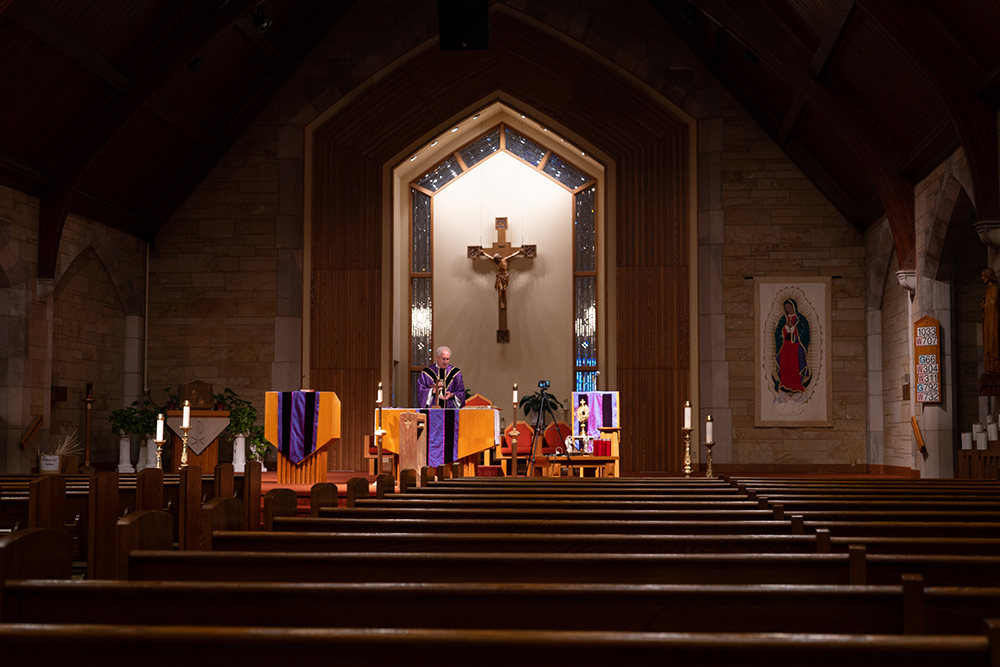Due to the current crisis, many bishops throughout the world have suspended the public celebration of the sacraments. Indeed, every diocese in the United States canceled public celebrations of the Mass during the current pandemic. This painful reality has led many of the faithful to question whether the diocesan bishop has the canonical power to limit access to the Mass.
The Church recognizes that rights and obligations are balanced realities. A right never stands on its own, but must serve both the individual and others in society. Canon 223 §1 reminds us that the faithful “must take into account the common good of the Church, the rights of others, and their own duties toward others” when exercising their rights.
Catholics certainly have the right to receive the sacraments when they “seek them at appropriate times, are properly disposed, and are not prohibited by law” (c. 843 §1). Yet, the law is also clear that ecclesiastical authority can “direct the exercise of rights” in light of the common good (c. 223 §2). The task of balancing these rights and duties typically falls to the diocesan bishop. The bishop, as the spiritual father of a diocese, answers primarily to God for the decisions he makes.
In view of this paternal role, Canon 381 §1 recognizes that the diocesan bishop, “must show himself concerned for all the Christian faithful entrusted to his care.” The canon also recognizes that the bishop, with few exceptions, has “all … power necessary for him to carry out his pastoral duty.” He is also the director of the “entire liturgical life” of the diocese (c. 835). Although certain aspects of the liturgy are reserved to higher authorities, appropriate regulation regarding public celebrations of the Mass falls into the bishop’s rightful authority.
Bishops in the United States have taken heed of warnings from public health experts and authorities that public gatherings present a serious risk of causing numerous deaths. In light of the information currently available, a bishop must balance the right to attend Mass against the natural “pro-life” obligation to prudently avoid causing otherwise preventable deaths. The bishops of the United States individually determined that the gravity of the crisis was sufficient to warrant the extraordinary step of temporarily suspending public celebrations of the Mass.
The temporary closure of churches by diocesan bishops is not an innovation, nor is finding creative ways to continue to offer the graces of the sacraments to the people of God. In the late 1570s Milan, Italy was struck by plague. The archbishop, St. Charles Borromeo, closed the city’s churches to prevent further spread. At the same time, he recognized the obligation to care for their spiritual good. Thus, he set up altars in intersections and city squares so that the people could participate in the Mass from the windows of their homes. Today, many bishops and priests are likewise finding novel ways — such as livestreaming the Mass — to make the Mass accessible, despite many being restricted to their homes.
Timothy Olson, J.C.L., is a canon lawyer from North Dakota serving on the Board of Governors for the Canon Law Society of America.

